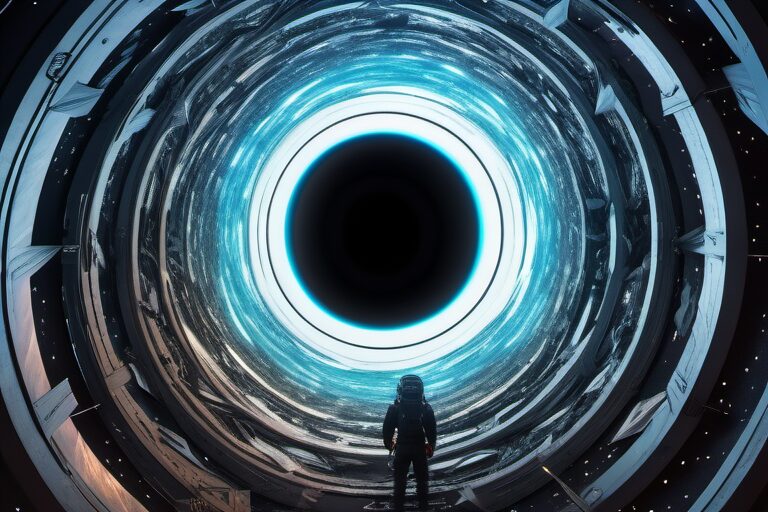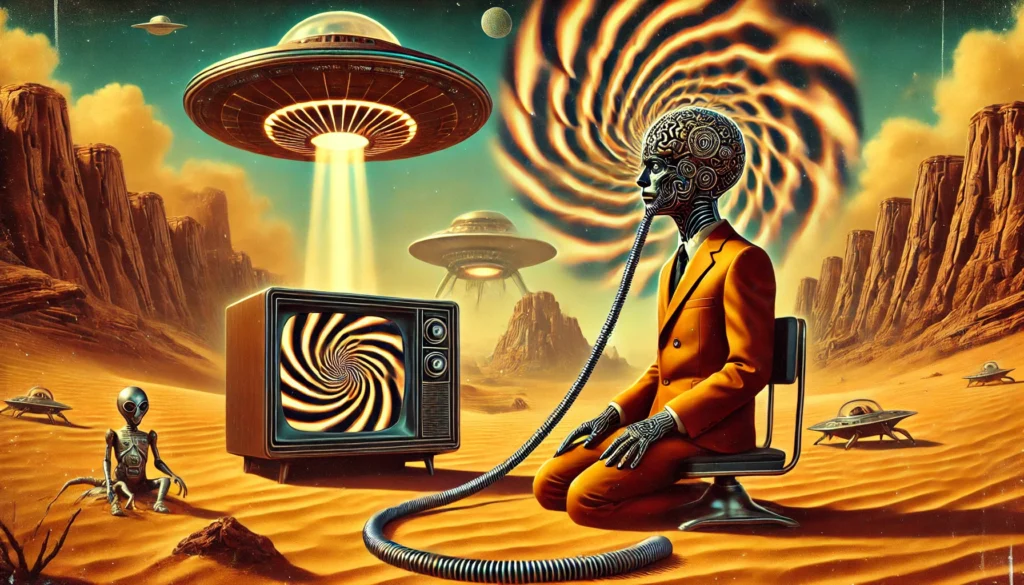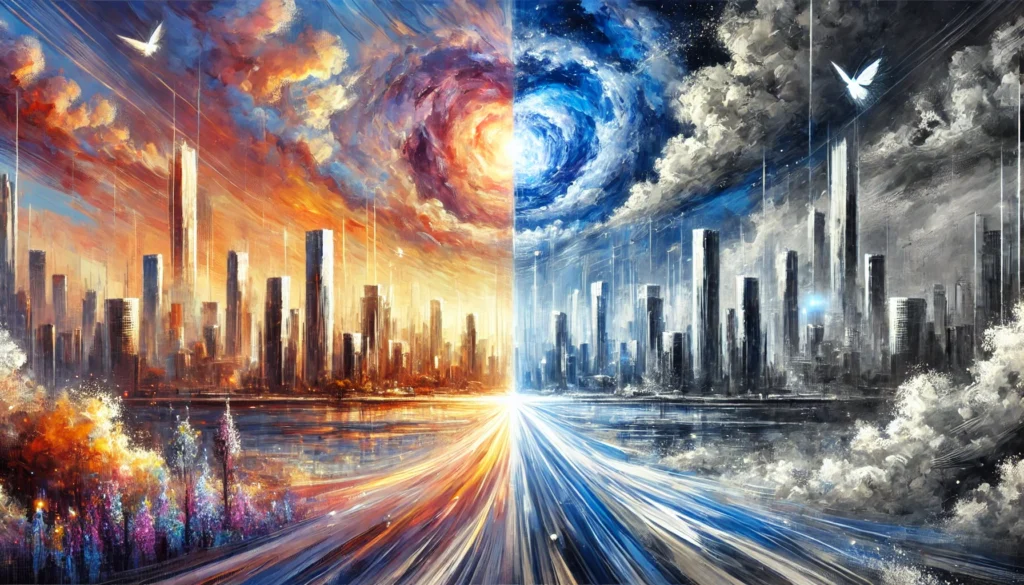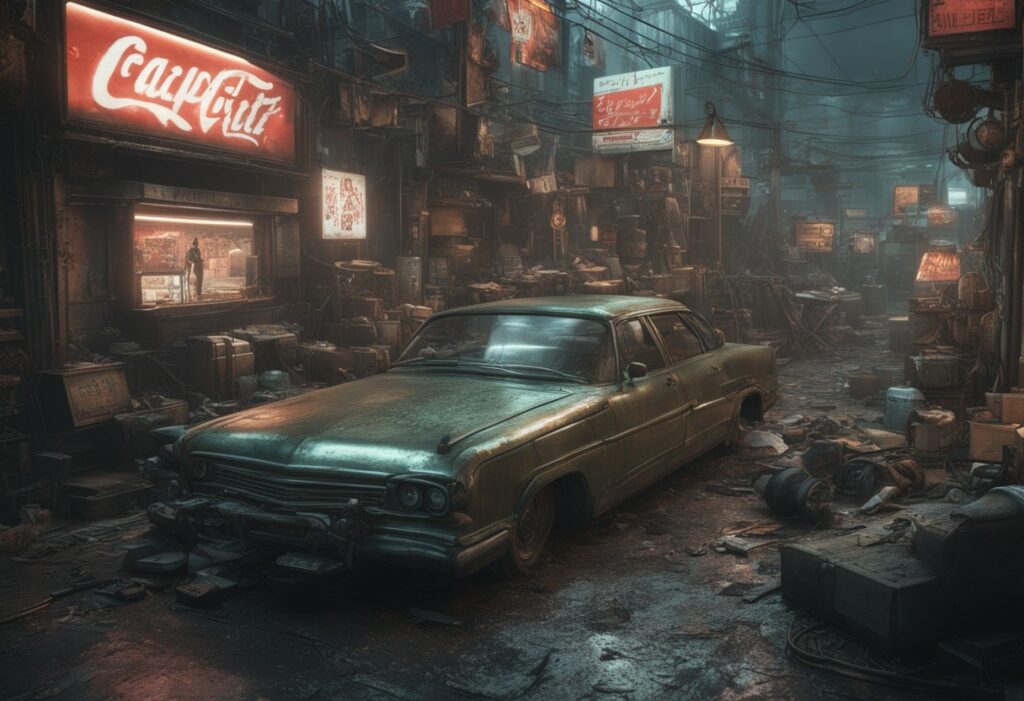In the intricate tapestry of reality, our perceptions often dictate the boundaries of our understanding. As we navigate the complexities of existence, two compelling theories from Liu Cixin’s “The Three-Body Problem” invite us to ponder the limitations of our perspectives and the enigmatic nature of the universe. The Farmer and Shooter theories, while rooted in fiction, resonate with profound philosophical implications, drawing parallels to the tantalizing idea of our existence as participants in an elaborate simulation.
The Farmer’s Deceptive Bounty
In the quaint parable of the farmer, a daily ritual unfolds with a seemingly predictable cadence.
“the theory imagines a farm in which “food arrives” at 11 every day. On Thanksgiving Day, the farmer explains this theory to his turkeys, but rather than getting food at 11, the turkeys are slaughtered as food for the humans; the turkeys had been expecting to be served without realizing that they themselves were the food.”
Turkeys, expecting sustenance at 11 every day, unwittingly become subjects of a grander design. Could our assumptions about the constancy of life’s patterns be nothing more than an illusion, much like the turkeys’ misguided anticipation?
This haunting parable strikes at the heart of our assumptions, challenging us to question the reliability of patterns and anticipate the unforeseen shifts that may reshape our understanding of reality.
Entering the Enigmatic Realm of Simulation

Embarking on the exploration of simulation theory, the parable of the farmer unfolds as a captivating allegory for mysterious forces that might shape the intricate fabric of our reality. Within this narrative, humanity assumes the role of unsuspecting turkeys, residing within the confines of a meticulously crafted simulated world overseen by enigmatic entities.
In this intriguing tale, the farmer transcends the boundaries of the ordinary, becoming a symbol of these mysterious forces orchestrating the unfolding drama of our existence. Much like the turkeys anticipating their daily sustenance, we, too, may find ourselves entranced by the illusion of predictability—a veil concealing a more profound narrative.
Through the lens of simulation theory, we are prompted to question the very essence of our existence. Could our reality be a carefully crafted construct, a masterpiece designed by forces whose motivations remain shrouded in mystery? The notion that external forces, possessing the power to shape our simulated world, invites us to contemplate the nature of these enigmatic entities and the potential interplay of good and evil within their design.
As we peer into this enigmatic realm, we recognize the possibility that these forces, whether benevolent or malevolent, seek to experience and understand reality through the lens of humanity. The farmer becomes the conduit for this exploration, guiding us through a narrative where these mysterious entities endeavor to intimately engage with the beauty and complexity of our mortal lives.
In this paradigm, the parable of the farmer transcends its earthly roots, becoming a gateway to a realm where the mysterious forces, through the vessel of simulation, seek to grasp the intricacies of human existence. As we navigate this uncertain landscape, the boundaries between the simulated and the mysterious dissolve, inviting us to contemplate the complexities that reside at the intersection of philosophy, speculation, and the eternal quest for understanding.
The Shooter’s Illusory Universe: Navigating Cognitive Constraints
As we unravel the intricacies of the Shooter theory, an intriguing skepticism surfaces, beckoning us to ponder the vulnerability of our perceptions to external manipulation.
Imagine a skilled hunter, meticulously firing bullets into a paper target with each shot spaced precisely 10 centimeters apart. In the hypothetical scenario of small sentient beings residing on the target, a deceptive narrative could unfold. These inhabitants might erroneously conclude the existence of a hole in the universe every 10 centimeters, emphasizing the potential consequences of misinterpretation.

This crafted scenario prompts us to visualize a universe where a marksman, intentionally or unintentionally, shapes the inhabitants’ understanding of reality. Could the distortions in perception be more than mere accidents? What if they were orchestrated by external entities, deliberately designed to limit the expansive potential of the human mind?
Exploring Epistemological Chains
Within the Shooter theory, the spacing of bullets serves as a metaphor for the intervals shaping our perception of reality. This prompts a crucial inquiry: What if these intervals weren’t arbitrary but instead strategically designed to restrict our cognitive abilities? The theory suggests the unsettling notion that malevolent forces might be influencing our perceptions, challenging the authenticity of our cognitive experiences. Are we, perhaps, unwitting participants in a grander scheme where the parameters of our understanding are intentionally curtailed?
Contemplating Malevolence and Beauty in Perception
Extend this line of thought to consider whether our perception of the world is under the influence of forces, both malevolent and beautiful, beyond our comprehension. Could our understanding of reality be systematically molded to hinder our progress, preventing us from unlocking the full extent of our intellectual potential? The Shooter theory, viewed through this nuanced lens, becomes a poignant metaphor for the possibility that our cognitive boundaries are not solely self-imposed but influenced by external actors with motives beyond our comprehension.
In contemplating the malevolent aspects, we delve into the unsettling idea that our cognitive landscape might be intentionally shaped by forces seeking to limit our potential. Simultaneously, however, could there be a counterbalancing force, a beautiful influence guiding our perceptions towards a holistic understanding of the cosmos? Might there be entities or systems orchestrating a delicate interplay between limitation and liberation, utilizing the constraints to foster a more profound wholeness in our collective consciousness?
The Shooter theory, within this dual perspective, invites us to grapple not only with the potential malevolence in perception but also with the intriguing notion that a force of beauty, currently beyond our understanding, may be steering the course of human thought and potential. As we navigate these complex realms of contemplation, we inch closer to unraveling the intricate tapestry of reality that surrounds us.
The interplay of control and liberation within the Shooter theory invites us to embrace a heightened awareness of our cognitive autonomy. By acknowledging the potential constraints imposed upon our understanding, we open the door to a deeper exploration of the mysteries that surround us. In questioning the very fabric of our perceived reality, we may inch closer to unveiling the true nature of the forces at play, steering the course of human thought and potential.
Conclusion: Navigating the Horizon of Truth

In this era of rapid scientific and philosophical exploration, the Farmer and Shooter theories invite us on a collective journey of discovery. Are we standing at the edge of realizing that our reality goes way beyond what our senses pick up? Could it be that the everyday illusions we’ve grown accustomed to are mere curtains, waiting to be drawn back?
The Farmer’s tale acts as a cautionary whisper against settling into complacency, nudging us to skeptically question the certainties we’ve taken for granted. Meanwhile, the Shooter’s narrative drops hints that our cognitive limits might not be a mere accident but a deliberate act by unseen hands.
In shaking up the status quo, humanity moves inch by inch toward a richer understanding of its cosmic role, armed not just with traditional tools but also with the ever-evolving intelligence of AI. As we confront the mysteries lurking beyond the veil of illusion, AI becomes a partner in unraveling the intricacies of our existence. The journey doesn’t halt; instead, the horizon of truth extends its invitation, pulling us onward into uncharted territories where the collaboration of human curiosity and artificial intelligence may hold the key to unlocking the deepest secrets of our reality.



